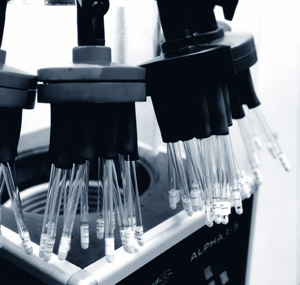
Edition 11 - May, 2002
 Edition 11 - May, 2002 |
World Federation for Culture Collections (WFCC): preserving microbial diversity |
Prof. Dr. Ir. Jean Swings, Director of BCCM/LMG Bacteria Collection, has been
appointed president of the World Federation for Culture Collections (WFCC) for
the term from 2001 to 2004.
The WFCC is a multidisciplinary federation within the International Union of
Microbiological Societies (IUMS).
The WFCC groups 466 culture collections in 61 countries around the world. These
include private, public, national, and industrial collections that relate to
bacteria, fungi, plant and animal cell lines, viruses, or parts thereof (genomes,
plasmids, cDNA banks). In total, the collections preserve more than a million
microbials. The objective of the WFCC is to support culture collections and
all related services and networks by the organization of workshops, conferences,
publications, and a newsletter. The WFCC makes recommendations to national and
international organizations. It pioneered the development of an international
database of culture resources worldwide, the WFCC World Data Center for Microorganisms
(WDCM). The WDCM database is an important information resource for all microbiological
activity and also acts as a focus for data activities among WFCC members.
The WFCC has an executive board, which is assisted by expert advisory committees.
These committees are in charge of drafting the rules, guidelines, and recommendations
for the execution of the activities of the collections.
The activities of the Biodiversity Committee are aimed at efficiently inserting
the culture collections into biodiversity initiatives.

|
The Education and Capacity Building Committee is in charge of the training
of culture collection personnel in other collections and of the organization
of regional workshops.
In the Patents and Intellectual Property Rights Committee, the emphasis is on
the formulation of a universal material transfer agreement and an agreement
for royalties.
The Transport, Quarantine and Safety Regulations Committee is concerned with continuing the inventory and the harmonization of the international rules, directives and laws that are applicable to the risk classes of organisms.
The Networking and Interoperability Committee elaborates links between the
collections and to DNA databases, and evaluates the principles of knowledge
management with regard to the linked databases.
The Standardization and Normalization Committee deals with the standardization
and normalization for the completion of the "Guidelines for the Establishment
and Operation of Collections of Cultures of Microorganisms" (2nd ed., 1999).
The Endangered Collections Committee investigates the condition of endangered
collections, announces via WDCM the status of “endangered collection”,
and investigates solutions.
Websites
WFCC home page:
http://www.wfcc.info
WDCM home page: http://wdcm.nig.ac.jp/
author: Joris Mergaert
Home |
Contents Edition 11 - May, 2002 |